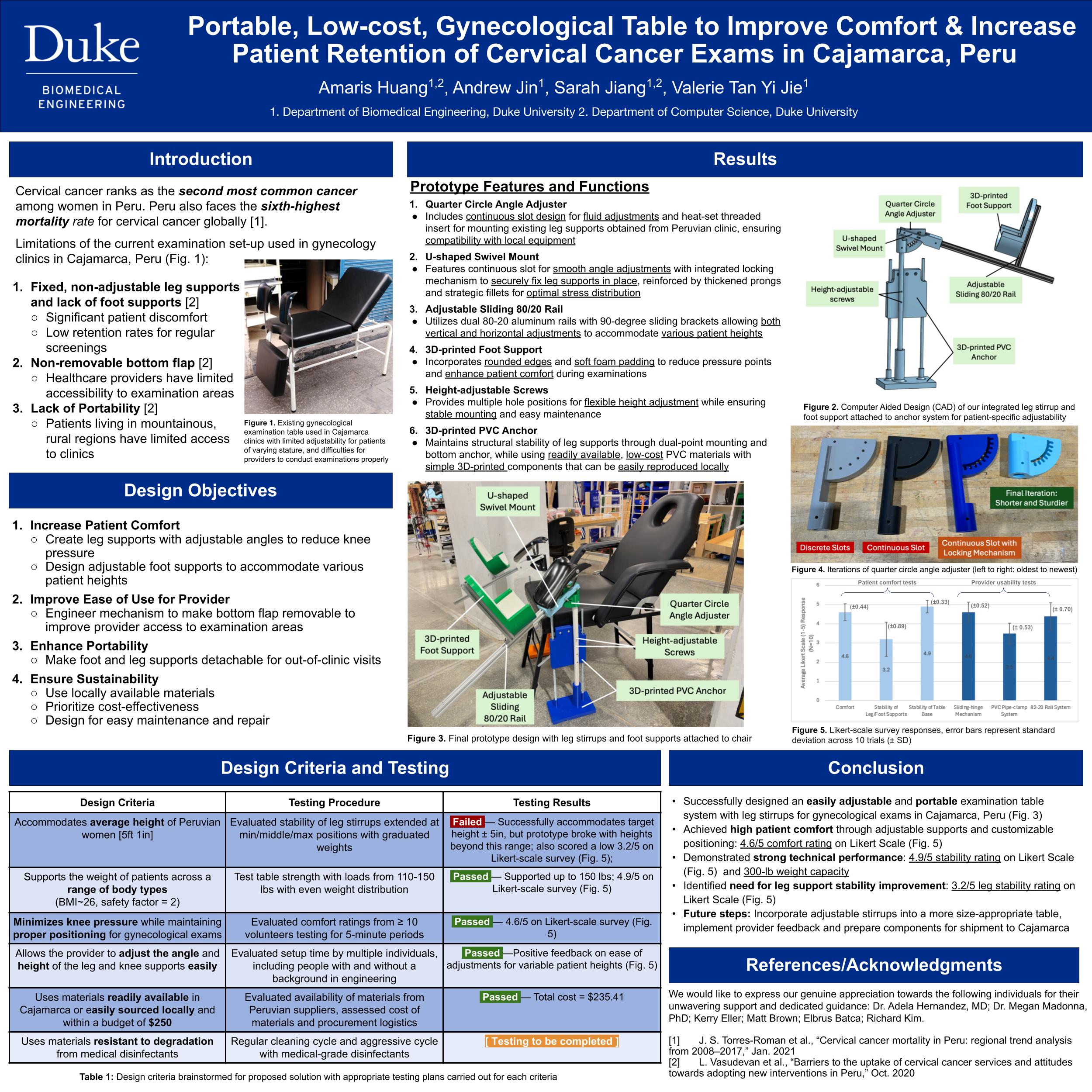Problem & Motivation
In Peru, cervical cancer ranks as the second most common cancer among women, with the country facing the sixth-highest mortality rate globally. The situation is particularly challenging in Cajamarca's gynecology clinics, where current examination equipment poses significant barriers to regular screenings. Existing setups feature fixed, non-adjustable leg supports that cause patient discomfort, non-removable bottom flaps that limit examination access, and a lack of portability that makes it difficult to serve patients in mountainous, rural regions.
Our project aimed to address these limitations through a comprehensive redesign of the examination table, focusing on patient comfort, provider accessibility, and system portability. The design needed to balance multiple competing factors: creating adjustable supports for diverse patient needs, ensuring durability for medical-grade use, and maintaining cost-effectiveness for implementation in resource-limited settings.

Poster presented at Engineering Design Day, Dec. 2024. More details available in folder linked here.
Technical Approach
We developed an integrated system featuring several key innovations. The quarter circle angle adjuster, designed with a continuous slot mechanism, allows for fluid adjustments and incorporates a heat-set threaded insert for mounting existing leg supports. A U-shaped swivel mount provides smooth angle adjustments with an integrated locking mechanism, while an adjustable sliding 80/20 rail system enables dual-axis positioning for optimal patient placement.
The design incorporates 3D-printed foot supports with ergonomic padding to enhance patient comfort during examinations. We utilized a combination of locally available materials and 3D-printed PVC components to ensure sustainability and easy maintenance. The height-adjustable screws provide multiple positions for flexible adjustments while maintaining structural stability.
Results & Impact
Testing demonstrated strong performance across key metrics, with the system successfully supporting up to 150 lbs with a 4.9/5 on the Likert stability scale. User comfort surveys yielded a 4.6/5 rating, indicating significant improvement over existing solutions. The design achieved its portability and adjustability goals while maintaining a total cost under $235.41, making it feasible for implementation in resource-limited settings.
Future iterations will focus on incorporating the adjustable stirrups into a more size-appropriate table based on provider feedback, with plans to prepare components for shipment to Cajamarca. This project represents a significant step toward improving cervical cancer screening accessibility in rural Peru, potentially increasing regular screening rates and contributing to better health outcomes.